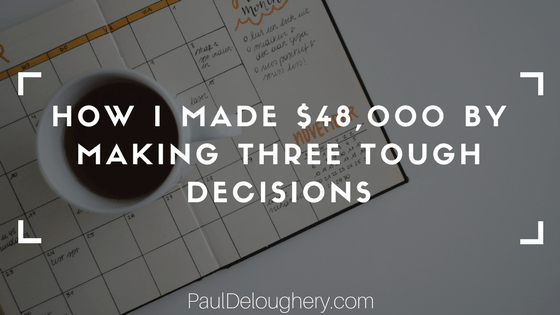After five years, I’ve finally come to a realization. I need to change the name of my law firm. In 2013 when I started practicing law again, I came up with the name “Magellan Law.” I liked that name for two reasons. First, I like the ocean and water and ships. Second, I thought a ship made a good analogy for a family’s wealth and what happens when a captain dies, or pirates try to take control.
The problem? My office is in Scottsdale, Arizona, far away from any significant body of water. And I always had to explain the analogy. I’m still not sure how many people understood what I was trying to do.
The solution? I’m starting a new law firm to be called “Family Wealth Lawyers, PLC.” That’s more obvious. Rather than trying to explain why some Portuguese guy who tried to sale around the world has any relevance to my legal clients, now they can look at the name. We’re going to be helping families with their wealth. We’ll be creating legal documents to help protect family wealth. And when family wealth is in jeopardy, we’ll help resolve the problem.
It’s going to take some work. I need a completely new website, for starters. But this will give me the chance to really start focusing on what I want, which is to help families preserve their wealth for multiple generations. This has always been a passion of mine, and the last thing I want is to get tripped up on my business name.
I just did a little research and discovered that I’m not the first person to make a mistake in naming my business. Jeff Bezos didn’t name his business Amazon at first. Rather, he first named his business Cadabra. At first blush, it’s not overtly that bad. But Cadabra isn’t a great name either. Jeff Bezos meant it to be a shortening of abracadabra but realized, not only that people had a tough time spelling it, they didn’t really get that it was part of abracadabra.
(By the way, you can read about even worse business names here.)
This just made me think of something else. We Americans are terrified of making mistakes. This originates as children. In a typical school (elementary school through university), we’re graded based on our correct answers. But in actuality, we learn from making mistakes. I had a couple of enlightened teachers in high school who would give tests and then have us pass our tests to another classmate. We would then grade that other person’s test. I remember learning the subject matter better that way.
In any event, I owned my mistake (naming my law firm based on my fascination with boats rather than basic marketing principles) and I’m fixing it. Have you made any mistakes that you’re ignoring? I’d love to hear your personal story.
Paul Deloughery is an estate and probate litigation, and law insurance dispute consultant in Scottsdale, Arizona. Visit his website to read more of his blogs or follow him on Twitter!
Originally published at pauldeloughery.com on March 19, 2018.




